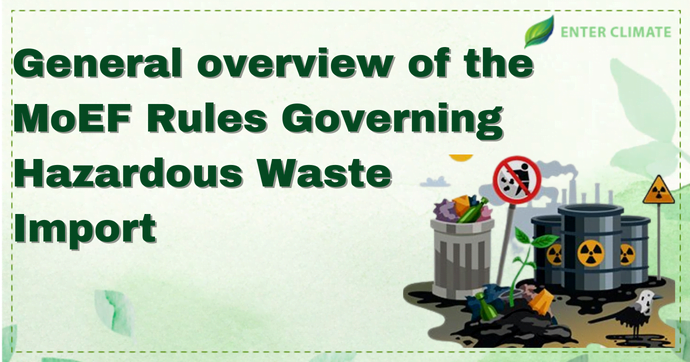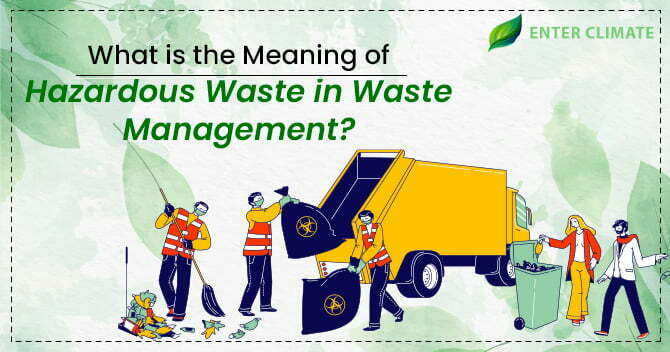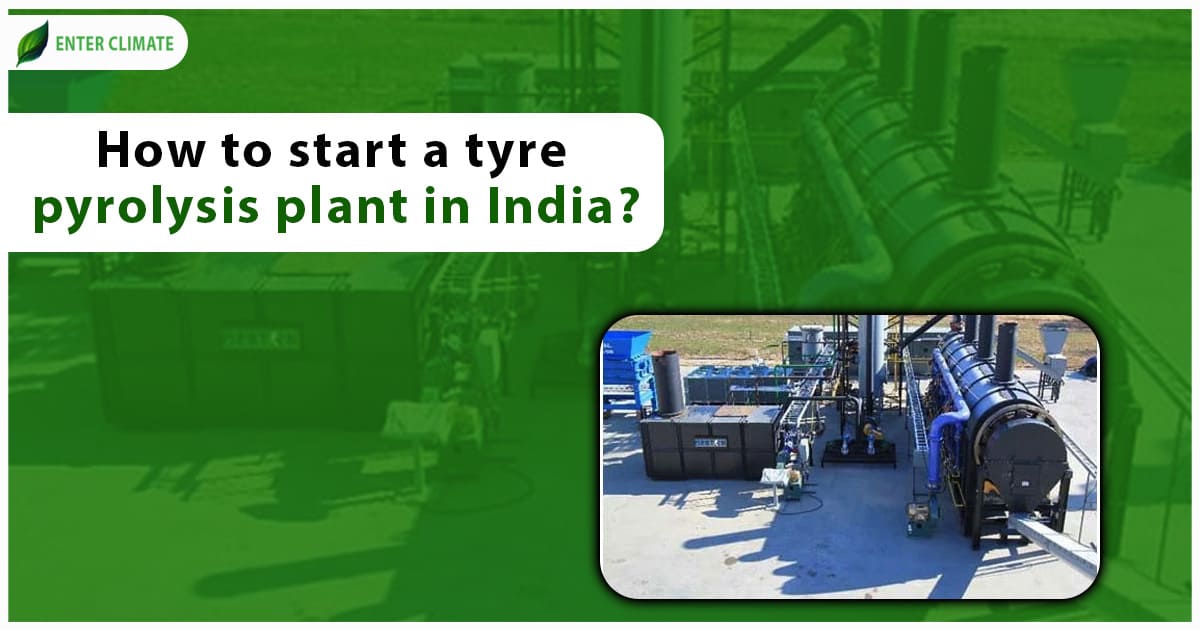General overview of the MoEF Rules Governing Hazardous Waste Import
 03 Nov, 2022
03 Nov, 2022 
Why is effective hazardous waste management the need of the hour?
According to the information provided by Central Pollution Control Board (CPCB), around 43,936 industries in India produce over 70 lakh tonnes of hazardous waste every year. Therefore, scientific disposal of this massively generated hazardous waste becomes quite essential. Disposing of waste scientifically by storage, collection, packaging, treatment and transportation in an environmentally sound manner reduces the harmful impact on human health and the environment. Thus, the Hazardous and Other Wastes (Management &Transboundary Movement) Rules, 2015, were introduced by the Ministry of Environment, Forest and Climate Change (MoEF), Government of India, on July 24, 2015. Through these rules, MoEF issued guidelines governing Hazardous Waste imports.
According to the rules, hazardous waste is any waste that, due to characteristics like chemical, physical, biological, toxic, reactive, flammable, corrosive or explosive, causes or is expected to harm the environment or health, whether alone or in contact with other substances or wastes. Also, the hazardous waste shall include –
- Waste mentioned under column (3) of Schedule I;
- Wastes mentioned in Part A of Schedule III in respect of the import/export of such wastes or the wastes not mentioned in Part A but exhibit hazardous characteristics mentioned in Part C of Schedule III;
- Waste possessing equal to or more than the concentration limits decided for the constituents in classes A and B of Schedule II or any of the features mentioned in class C of Schedule II.
Cases where MoEF Rules Governing Hazardous Waste Import don’t apply
MoEF rules governing Hazardous Waste Importshall not apply to the following –
- Exhaust gases and wastewater as covered under the Water and Air (Prevention and Control of Pollution) Act, 1974 and 1981, respectively
- Radio-active wastes, as specified under the guidelines of the Atomic Energy Act, 1962
- Wastes resulting from the operation of ships far five kilometres from the relevant baseline as mentioned under the Merchant Shipping Act
- Bio-medical wastes under the Bio-Medical Wastes (Management and Handling) Rules, 1998
- Wastes under the Municipal Solid Wastes (Management and Handling) Rules, 2000
When is Hazardous Waste Import considered Illegal?
MoEF Rules Governing Hazardous Waste Import and export from and into India stipulate some conditions where the import/export shall be deemed illegal. These conditions are as follows –
- If import/export is without permission of the Central Government under the following rules –
- The permission has been received via misrepresentation, falsification or fraud.It doesn’t abide by the shipping details specified in the movement documents.
- It results in deliberate dumping (i.e., disposal) of hazardous or other waste in violation of the general principles of international or domestic law or the Basel Convention.
- In case of illegal hazardous or other waste import, where the importer is not reachable, then the waste either can be sent to an authorised treatment, storage and disposal facility (TSDF) or can be sold by the Customs authority to any user with authorisation from the concerned State Pollution Control Board.
- According to the MoEF Rules Governing Hazardous Waste Import, in case of illegal import, the importer must re-export the waste at stake at his cost. This must be done within three months of its arrival in India. Moreover, its implementation will be ensured by the specific port and the customs authority under these rules with the consent of the Pollution Control Board (PCB) of the state where the port is located.
Market analysis of the hazardous waste import
According to the Basel Convention Secretariat, reported hazardous waste imports increased from around 6 million MT per year from 2001-2003 to 12 million MT per year from 2016-2018.
Ministry Responsible for Governing Hazardous Waste Import and export (transboundary movement)
The Ministry of Environment, Forest & Climate Change (MoEF)is the nodal ministry to manage the transboundary movement of hazardous and other wastes according to the rules.
Responsibilities of MoEF, SBCP and DGTF for environmentally sound management of hazardous and other wastes
Besides setting MoEF rules governing Hazardous Waste Import, the Ministry also fulfils the following responsibilities –
- Grant permission to importers and exporters of hazardous and other wastes
- Identifying hazardous and other wastes
- Consent for transit of hazardous and other wastes through India
- Encourage environmentally sound management of hazardous and other waste
- Sponsoring awareness programmes and training on Hazardous and Other Waste Management related activities
Responsibilities of Pollution Control Committees (PCCs) or State Pollution Control Boards (SPCBs)
- Grant and renewal of authorisation
- Inventorisation of hazardous and other wastes
- Analysing compliance with various conditions and provisions of permission, including conditions of MoEFissued guidelines for governing hazardous waste import and export
- Scrutinising the applications submitted by the importers for imports and forwarding them to MoEF
- Implementation of programmes to reduce, prevent or minimise hazardous and other wastes generation
- Any other function in these rules assigned by MoEF
- Acting against violations of these rules
Responsibilities of the Directorate General of Foreign Trade
- Refusal of licence for prohibited export and import of hazardous and other wastes
- Grant of licence for hazardous waste import
Documents required for abiding with MoEF Rules Governing Hazardous Waste Import
List of documents to be checked by Customs for import of other wastes mentioned in Part D of Schedule III
- Completely filled out Form 6 and Movement document
- The import license granted by the Directorate General of Foreign Trade, wherever applicable;
- Pre-shipment inspection certificate granted by the inspection agency of the exporting nation or the certification and inspection agency approved by the Directorate General of Foreign Trade.
- For actual users, valid consents to operate as per the Air and Water Acts and the authorisation as per the rules. For traders, only valid one-time authorisation from the concerned SPCB is required.
- The chemical analysis report of the imported waste
- A copy of the acknowledged annual return filed with the concerned SPCB for import in the previous financial year
Grant of authorisation for hazardous and other wastes management
1. Every facility occupier engaged in the generation, handling, collection, packaging, storage, transportation, treatment, use, processing, recovery, recycling, pre-processing, co-processing, utilisation, disposal or transfer of the hazardous and other wastes and offering for sale must apply in Form 1 to the SPCB. This is done to obtain authorisation within two months from the rules’ publication date. Such application for authorisation must have a copy of each of the following documents:-
- Consent to Operate
- Consent to Establish is also required to comply with MoEF Rules Governing Hazardous Waste Import.
- A self-certified compliance report for authorisation renewal (apply three months before the expiry)
2. Upon receiving a complete application for authorisation, the State Pollution Control Board may conduct the inquiry. On being satisfied that the applicant possesses suitable facilities for effective management of hazardous and other waste, grants authorisation in Form 2 to the applicant within four months. This authorisation is valid for five years, subject to conditions as may be laid down therein.
3. The authorisation granted by the SPCBmust accompany a photocopy of the field inspection report signed by that board.
4. The State Pollution Control Board can also refuse to grant authorisation under these rules. Upon cancellation or suspension of the authorisation, the SPCB may instruct the concerned for the safe storage and management of hazardous and other wastes. Such occupiers must abide by such instructions.
5. Every authorised occupier must preserve a record of hazardous and other wastes in Form 3. The occupier should also submit an annual return containing the details specified in Form 4 to the SPCB on or before June 30.
Strategy to comply with MoEF Rules Governing Hazardous Waste Import
- The import of hazardous & other wastes from any nation shall be allowed only for recovery, recycling, reuse and utilisation, including co-processing.
- No hazardous and other wastes imported to India from any nation for disposal shall be allowed.
- The import of hazardous waste may be permitted to actual users with the informed consent of the exporting nation and requires the consent of the MoEF.
- The import of other wastes, as mentioned in Part D of Schedule III, is permitted according to the process given in rule 13 of the MoEF Rules Governing Hazardous Waste Import.
- The import of other wastes in Schedule III (Part B) can be permitted with the permission of the MoEF.
- Importing hazardous and other wastes mentioned in Schedule VI is not allowed.
- The import & export of hazardous $ other wastes not mentioned in Schedule III but showing the hazardous properties mentioned in Part C of Schedule III need the prior written consent of the MoEF before its import or export to/from India, as the case may be.
Procedure for Hazardous Waste Import as mentioned in the MoEF guidelines
- Actual users seeking to transit or import hazardous and other wastes mentioned in Part A & B of Schedule III must apply to the MoEF for the proposed import in Form 5, in addition to the documents listed therein. The application must include the informed consent of the exporting nation.
2. The applicant must, at the same time, submit a photocopy of the application to the concerned SPCB. The acknowledgement from the concerned SPCB must be submitted to the MoEF along with the application.
3. According to MoEF Rules Governing Hazardous Waste Import, the importer need not require the consent of the MoEFto import other wastes mentioned in Part D of Schedule III. However, the importer must furnish the needed information as per Form 6 to the Customs authorities. The information must be accompanied by the following documents and those mentioned in Schedule VIII. For used electrical and electronic assemblies listed in Schedule VIII (Basel No. B1110), no particular document is required under these rules:
- Valid consents under the Water and Air (Prevention and Control of Pollution) Act, 1974[1] and 1981 and the authorisation under these and the E-waste (Management and Handling) Rules, 2011
- The import license from the Directorate General of Foreign Trade, if applicable
- An importer who is a trader must get one-time authorisation in Form 7, and a copy of this authorisation shall be attached to Form 6.
- Before clearing a consignment of wastes mentioned in Part D of Schedule III, the Customs authorities must verify the documents as mentioned in column (3) of Schedule VIII.
4. In case of any used electrical and electronic assemblies import as mentioned under Schedule I of the EWM Rules, 2011, the importer must get Extended Producer Responsibility (EPR)- Authorisation as producer. One needs the following documents to obtain ERP – Authorisation –
- ERP plan
- Copies of agreement with dealers
- Copy of permission from the concerned department/ministry for selling their product
- Copies of agreement with dismantler/recyclers
- Copies of agreement with collection centres
- Copies of the agreement with TSDF
- Copy of DGFT licence/permission (IEC certificate)
- Copy of agreement with PRO
- Self-declaration on Restriction of Hazardous Substances (RoHS) as per 9.1 and 9.2
- Details of suggested awareness programmes
- Estimated budget for EPR and allied initiatives to create consumer awareness
- EPR Plan mentions the channelisation of e-waste and its flow chart, the general scheme of collection and website information
- Estimated generation of Waste Electrical and Electronic Equipment (WEEE)
5. On receipt of the complete application, MoEF examines the application. The ministry then may grant the permission for import within two months, as per the condition that the importer has –
- Sufficient arrangements for the disposal and treatment of wastes generated
- The environmentally sound facilities
- Prior informed consent from the exporting country
- Valid consent and authorisation from SPCB
6. MoEFthen sends a copy of the permission to the CPCB, concerned Port and Customs authorities, and SPCB.
7. As mentioned in the MoEF Rules Governing Hazardous Waste Import, the importer must maintain records of the waste imported in Form 3. This record must be available for inspection.
8. The importer must submit an annual return in Form IV to the SPCB on or before June 30, following the financial year to which that return relates.
9. The Port and Customs authorities must ensure that the shipment is accompanied by the movement document in Form 6 along with the test report of the waste analysis. In case of any doubt, the customs can verify the analysis.
10. Samples of imported hazardous and other wastes for research and development or testing purposes up to 1000 ml or 1000 gm don’t require permission for import.
Conclusion
Failure to efficiently manage hazardous waste can have serious long-term and acute harmful effects on human health and the environment. Besides polluting groundwater, surface water and land, it can result in hefty litigation, fines and even the shutdown of business operations. From a business point of view, hazardous waste must be managed effectively to avoid legal and financial implications and limit those risks. This needs a robust management system, including proper rules governing hazardous waste import.
Read our Article: Overview of Hazardous Waste Management Rules in India













